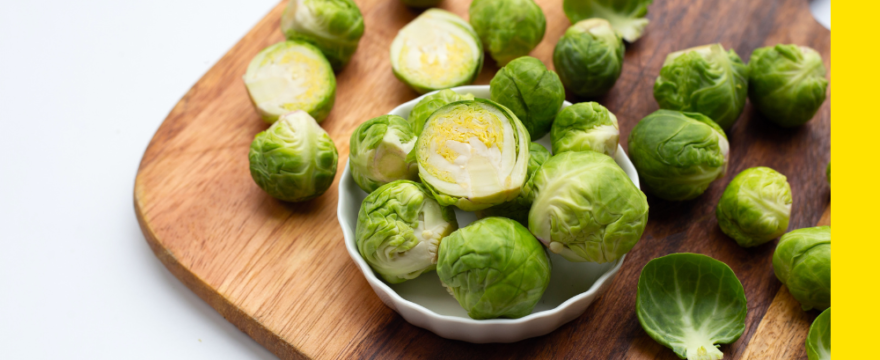When it comes to maintaining health and reducing the risk of chronic illnesses like cancer, nutrition plays a vital role. For Black women in helping professions—balancing career, family, and community commitments—it can feel overwhelming to prioritize health. However, incorporating key compounds like betaine, saponins, isothiocyanates, and carotenoids into your diet can be a simple yet powerful step toward wellness.
In this post, we’ll explore what these compounds are, where to find them, and how they may support your body in cancer prevention.
1. Betaine: The Liver’s Ally
What It Is
Betaine, also known as trimethylglycine (TMG), is a naturally occurring nutrient found in foods like:
- Beets
- Spinach
How Betaine Supports Your Body
Betaine is a multitasker that:
- Helps the liver process fats effectively.
- Regulates homocysteine, an amino acid in the blood that, when elevated, can contribute to chronic diseases.
Betaine and Cancer Prevention
By supporting liver function—the body’s primary detox organ—and regulating homocysteine, betaine indirectly reduces factors that contribute to cancer risk. Emerging research also suggests betaine may influence gene expression and reduce inflammation, two processes tied to cancer development.
Easy Ways to Add Betaine to Your Diet
- Toss fresh spinach into a smoothie or salad.
- Add beets for a colorful, nutrient-rich addition to your meal.
2. Saponins: Nature’s Immune Boosters
What They Are
Saponins are plant compounds that naturally foam when mixed with water. They’re abundant in foods such as:
- Legumes (beans, peas, soybeans)
- Quinoa
- Some herbs
How Saponins Support Your Body
These compounds:
- Help lower cholesterol levels.
- Modulate the immune system, enhancing its ability to respond to threats.
Saponins and Cancer Prevention
Lab studies indicate saponins may:
- Disrupt cancer cell membranes, slowing or halting their growth.
- Improve the immune system’s ability to identify and attack tumor cells.
Easy Ways to Add Saponins to Your Diet
- Make a hearty black bean or lentil soup.
- Swap rice for protein-packed quinoa in your meals.
- Try edamame as a snack or salad topping.
3. Isothiocyanates: Detoxifiers Extraordinaire
What They Are
Isothiocyanates are natural compounds found in cruciferous vegetables like:
- Broccoli
- Cauliflower
- Brussels sprouts
- Kale
- Cabbage
A well-known isothiocyanate is sulforaphane.
How Isothiocyanates Support Your Body
These compounds are potent antioxidants that:
- Neutralize harmful substances in the body.
- Aid the liver in breaking down and eliminating potential carcinogens.
Isothiocyanates and Cancer Prevention
Research shows these compounds can:
- Stimulate enzymes that detoxify carcinogens, potentially reducing DNA damage.
- Inhibit tumor growth by controlling inflammation and preventing the formation of blood vessels that feed tumors (anti-angiogenic effects).
Easy Ways to Add Isothiocyanates to Your Diet
- Add chopped kale or cabbage to your favorite soups or sautés.
- Roast Brussels sprouts with olive oil and your favorite spices.
- Steam broccoli as a side dish or use it to make a raw vegan dish. My fave is dehydrated broccoli with cauliflower rice and an Asian inspired sauce on top with coconut aminos and almond butter.
4. Carotenoids: Vibrant Antioxidants
What They Are
Carotenoids are a class of pigments responsible for the bright orange, red, and yellow hues in foods like:
- Carrots
- Sweet potatoes
- Tomatoes
- Bell peppers
- Dark leafy greens
Examples of carotenoids include beta-carotene, lycopene, lutein, and zeaxanthin.
How Carotenoids Support Your Body
Carotenoids:
- Act as powerful antioxidants, protecting cells from damage caused by free radicals.
- Support vision, immune function, and cell growth (some carotenoids convert to vitamin A).
Carotenoids and Cancer Prevention
Diets rich in carotenoid-containing fruits and vegetables have been linked to a lower risk of certain cancers, such as lung and prostate cancer. Their antioxidant properties reduce oxidative stress, a key driver of cancer development.
Easy Ways to Add Carotenoids to Your Diet
- Snack on raw carrot sticks or bell pepper slices.
- Blend sweet potatoes into soups or bake them as fries.
- Enjoy a fresh tomato salad or homemade tomato-based sauce.
Putting It All Together: Practical Tips
Incorporating these compounds into your diet doesn’t have to be complicated. Here are a few actionable steps:
- Plan Your Meals Around Plants: Fill at least half your plate with a variety of vegetables, legumes, and whole grains at each meal.
- Prep in Advance: Chop veggies and cook grains like quinoa in bulk for easy additions to meals.
- Experiment With Recipes: Try new ways to prepare foods rich in these compounds, such as raw dishes, steaming, or adding them to smoothies.
- Stay Consistent: Make these nutrient-rich foods staples in your diet for long-term benefits.
A Holistic Approach to Cancer Prevention
While nutrients like betaine, saponins, isothiocyanates, and carotenoids are powerful allies, it’s important to remember that they’re just one piece of the puzzle. A holistic approach to cancer prevention includes:
- Regular Exercise: Aim for at least 150 minutes of moderate activity each week.
- Stress Management: Practice mindfulness, meditation, or other stress-relief techniques.
- Adequate Sleep: Prioritize 7-9 hours of quality sleep each night.
By combining a balanced, nutrient-rich diet with these healthy habits, you can take meaningful steps toward reducing your cancer risk and living a vibrant, fulfilling life.
Final Thoughts
Prioritizing your health doesn’t have to be overwhelming. Start by adding a few of these nutrient-packed foods to your meals and celebrating each small change. Over time, these choices build a foundation for better health—supporting not just cancer prevention, but overall well-being.
Remember, you’re not alone on this journey. As you care for others, take time to nourish and care for yourself. Your health matters, and you deserve to thrive.

Leave a Reply